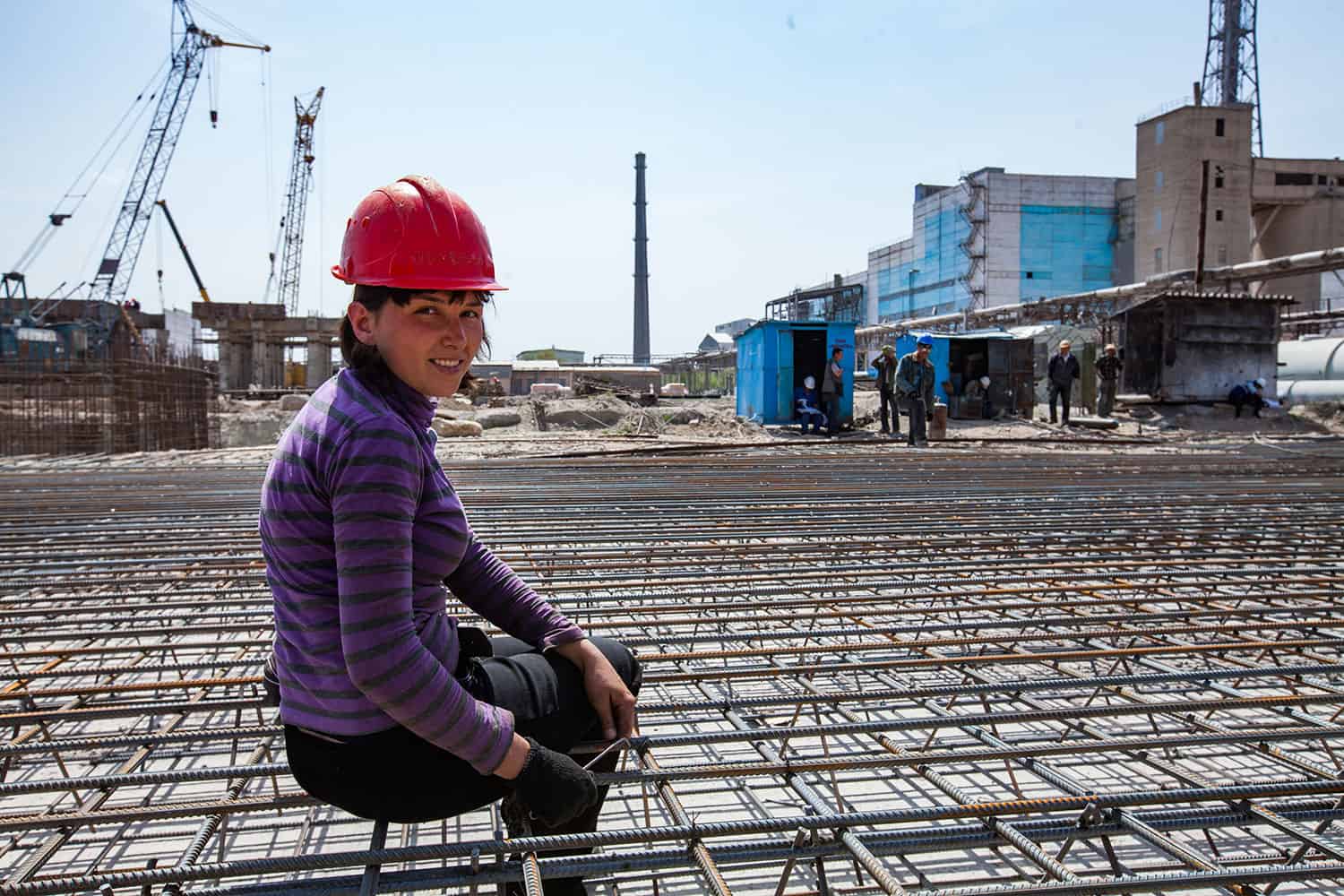You can’t head to your destination without a starting point and a map. When it comes to women working in the mining sector, the lack of data means we don’t know where we stand.
Although governments and international institutions are increasingly collecting and sharing data, a persistent challenge stems from the fact that the mining industry encompasses mining-specific skills as well as those that are common to other sectors. Furthermore, not every country defines mining in the same way, and national statistics are not always disaggregated by gender. Even when they do, this is usually limited to a total split by gender. Therefore, data from national statistics bureaus alone cannot necessarily furnish a deep understanding of the reality experienced by women in the sector.
While the best potential source of data is the mining industry itself, companies typically do not compile and disclose this sort of information for external use.
Women must be both heard in the workplace and seen in the data to continue to improve diversity, governance, and sustainability in the sector.
Without the data, it’s unclear, for instance, if new technologies like automation and digitalization will create more opportunities for women or exacerbate existing skills shortages. This lack of hard evidence has been frequently flagged by policy-makers and experts, including at the World Bank’s Second Global Gender in Oil, Gas and Mining Conference.
At International Women in Mining (IWiM), this situation provided all the impetus we needed to launch the Women and the Mine of the Future (WMF) project with a diverse group of partners.
Women and the Mine of the Future Project Partners
- Intergovernmental Forum on Mining, Minerals, Metals, and Sustainable Development
- International Labour Organization
- International Women in Mining
- United Nations Environmental Governance Programme
Building the Baseline
As relatively little data has been collected on gender, it is hard to make valid recommendations to reform the sector. The first phase of the WMF project will establish initial baseline data to lay the foundation for future risk mitigation measures.
During this first phase, we will focus on 11 countries that already have good data: Australia, Brazil, Canada, Chile, Colombia, Ghana, Mongolia, Peru, South Africa, Sweden, and Zambia. We will use this data to ascertain the state of play of gender-disaggregated employment by occupation, education, age, skills, pay, and seniority level in the large-scale mining sector.
We know the nature of the problem, but we need more concrete and concerted action in response.
While the data sources will vary between countries, the official data collected by national statistics bureaus and ministries of mines will be key to compiling reliable, globally comparable data. To complement our analysis, we will incorporate available data from mining companies and other sources, including minerals councils and chambers as well as employer associations. The project will also tap into data from international and non-governmental organizations such as the Extractive Industries Transparency Initiative, World Bank, World Economic Forum, and the International Council on Mining and Metals. Where relevant, the project will compile case studies that highlight industry-level data or showcase project-level initiatives to improve working conditions, employment opportunities, and the overall representation of women in the mining sector.
By the end of the first phase, the project will produce a set of country reports to assess policies and data related to employment and skills in the large-scale mining sector. In addition, a global report will be compiled to show a cross-country comparison of the above-mentioned reports, drawing lessons from best practices and offering specific recommendations and policy guidelines to address the multiple challenges faced by women in the mining sector.
What Type of Data Do We Need?
Ultimately, we need granular disaggregated data that can be broken down by gender. This data requires interpretation, plus consistent measuring and tracking over time. This type of data can be aggregated and disaggregated as required. It can also inform strategies and concrete actions like targeted adjustments. Importantly, it yields information with enough specificity and insight to compel decision makers to take immediate action.
Why Do We Need This Data?
There are many ways this granular data can lead to better on-the-ground outcomes. For instance, mining companies commonly measure employees by gender in terms of seniority, how many are recruited, and by employment category. But it’s unlikely they would have the data to measure how many women employees are science, technology, engineering, and mathematics (STEM) graduates within each role and how they are progressing compared to others. Basic data might allow you to measure how many promotions are going to women, but can’t provide deeper insights such as how many promotions are going to Black or Indigenous women. These two examples illustrate the many ways that enhanced data can form the foundation for better practices in the sector.
Concrete Action
Transparent, free, and accessible data and collaboration across all actors are needed to achieve gender equality and empowerment for women and girls. We know the nature of the problem, but we need more concrete and concerted action in response.
Women must be both heard in the workplace and seen in the data to continue to improve diversity, governance, and sustainability in the sector. With the right data in hand, stakeholders can further research, discuss, and develop solutions to the important gender equality issues in mining.
The WMF project is one step on the path to gender equality in the mining sector—we hope you can join us on the journey.
For more information on the WMF project, contact: Secretariat@IGFMining.org.
Barbara Dischinger is Director and Founder of International Women in Mining (IWiM), a leading not-for-profit global organization pursuing gender equality and promoting women’s voices, access to opportunities and leadership in mining.

